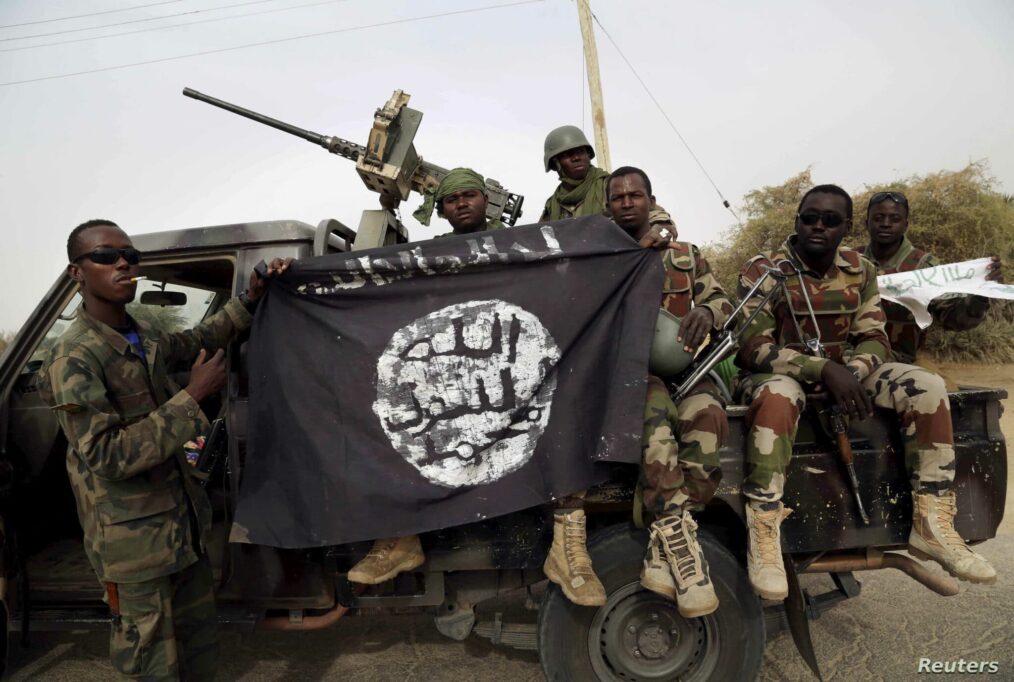More than half a decade ago, the now dominant faction in Nigeria’s conflict, Islamic State West Africa Province (ISWAP), split from Boko Haram, pledging allegiance to ISIS. Formerly led by the late Abu Musab al-Barnawi, son of the former Boko Haram leader and founder, Mohammed Yusuf, the group is said to have disapproved of Boko Haram’s extremist strategies.
Most of its attacks have targeted the Nigerian Army and its close allies. With a robust weaponry base, steady flow of funding, and exploitable societal gaps that aid its recruitment and expand its membership, ISWAP has successfully launched several attacks in Nigeria, Cameroon, Chad, and Niger.
A Growing Threat
Recently, ISWAP resumed its quest to both overthrow and expand into Boko Haram’s territory in north-eastern Nigeria. Since 2016, both rival groups have clashed severely, often leading to many deaths of its members and innocent civilians. Over the years, these infightings occurred intermittently.
The recent fights in 2021 resulted in the death of several individuals, including the former Boko Haram leader Abubakar Shekau. ISWAP’s conquest over the region seems to be on track, even with the killing of Abu Musab al-Barnawi and his successor Malam Bako by the Nigerian Army.
Until They Struck
ISWAP has long constituted a high risk to the ongoing conflict in north-eastern Nigeria. With a membership base that is more than double the size of Boko Haram’s and a strategy that appeals to the locals, one would expect that curtailing the expansion of ISWAP would be prioritised. Unfortunately, these expectations have remained unmet as the group continues its offensives against the Nigerian military.
In December 2018, ISWAP attacked a Nigerian military base in Baga, a town reclaimed by the Nigerian army in February 2015. On February 23, 2019, while Nigeria held its general elections, ISWAP launched its first-ever attack on Borno state’s capital, Maiduguri, firing rockets at military targets.
In December 2021, ahead of the Nigerian president’s visit to Maiduguri, ISWAP launched multiple rocket attacks in the city and neighboring towns, perhaps their way of informing the president that the war with ISWAP was far from over. The attacks spurred reactions from the government, as the president called for an emergency meeting with his service chiefs 24 hours after the rocket attacks. Stressing the need to be firm and proactive in the fight against terrorism, the president urged the service chiefs to ensure that terrorists, especially ISWAP, be left with no room to escape.
The Culture of Silence
Nigeria has seen several democratic administrations come and go, one common trait among all is a culture of silence. Some internal conflicts and crises in Nigeria usually start as a minor problem that receives little to no attention from the concerned authorities. Before long, these problems manifest into grave issues that overwhelm the government; it appears as though if the situation fails to disrupt government activities, it is less of a priority.
At its initial stage, the conflict in north-eastern Nigeria received little attention from the government. For a long time, what is now known as terrorism was not seen as a Nigerian problem but a minor northern problem; it took the disruption of activities in Abuja to provoke a response from the government. A similar trend occurred in the Niger Delta crisis, where a brief response only came after the country’s economy experienced a downward dive.
National Interests?
The safety of an impoverished citizen should mean as much as those in privileged and leadership positions. The culture of silence until resources and special interests are at risk questions the definition of the nation’s interests.
Although the concept of national interests remains ambiguous, whatever constitutes a nation’s interest should be collective and not individualistic. The culture of silence until a low-level issue is of consequence is dangerous and needs to change.
Joan McDappa, Counter-Terrorism Research Fellow


